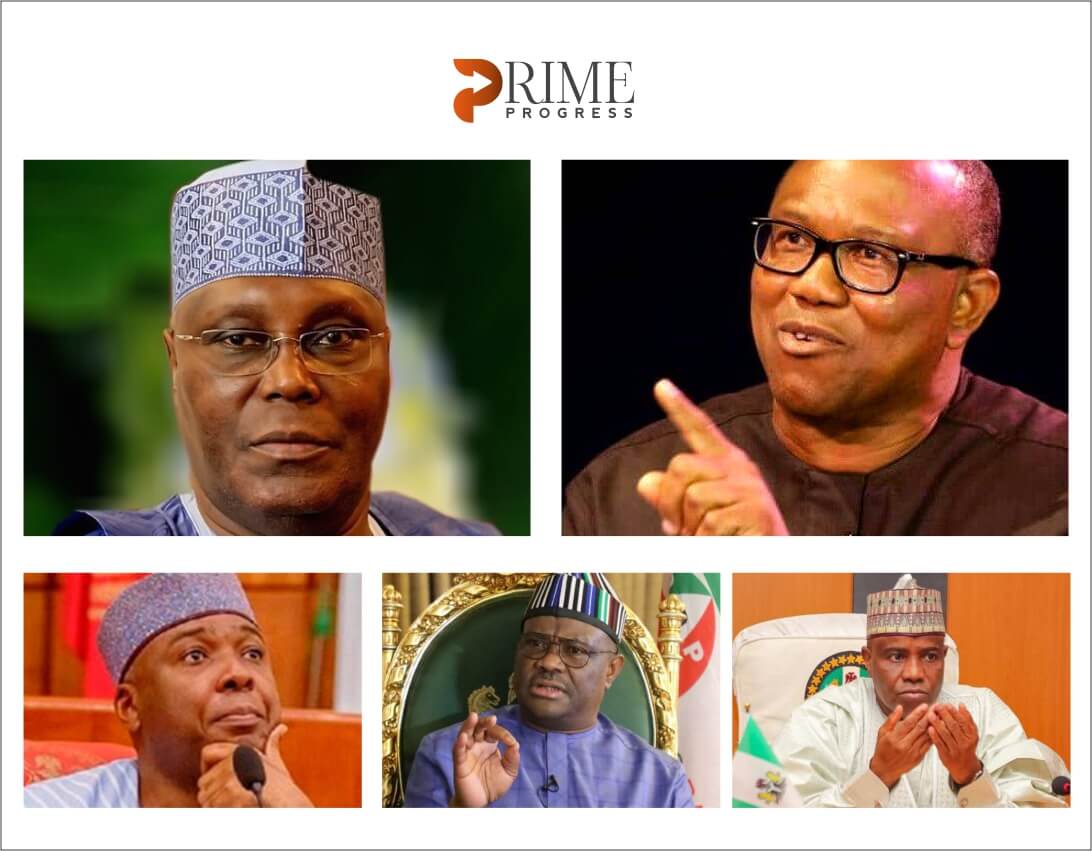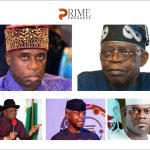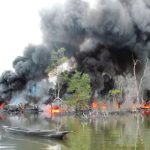In 1999, when Olusegun Obasanjo was elected Nigeria’s president under the Peoples Democratic Party or PDP, it was the beginning of a new republic after protracted draconian military regimes. Nigerians were happy that the sun of democracy had finally risen over their horizon.
By 2014, the PDP had been reputed for growing the nation’s economy into the largest in Africa, with the World Bank estimating the country’s economy at $546.68 billion, up from $59.37 billion in 1999. PDP’s 16 years also saw growth in key sectors, including agriculture, transportation, and telecommunication.
But in 2015, the PDP lost control of the federal government to the then newly-formed All Progressives Congress or APC in a contest between former President Goodluck Jonathan and current President Muhammadu Buhari.
PDP fell out of favour with Nigerians for several reasons. By 2015 the PDP had become notorious for grand corruption and failure to use the country’s resources productively despite the prices of crude oil (Nigeria’s economic mainstay) peaking at $107, $109.45 and $105.87 per barrel in 2011, 2012 and 2013, respectively.
Today, however, many Nigerians feel that they would rather have back the PDP years than continue with the APC. The APC has failed to lead the positive “Change” it promised as the economic, security and general conditions have worsened under its leadership, with prices of essential commodities tripled.
Ahead of the general elections next year, about 17 aspirants have declared interest in contesting for PDP’s ticket in its primaries coming up later this month. For Nigerians to trust the PDP with power again, the party must nominate a candidate with a strong positive reputation and capacity to transform the economy, end insecurity, and give no room for corruption. So Prime Progress presents PDP’s strongest aspirants and their track records to help Nigerians know who to trust.
Atiku Abubakar
Former Vice President (1999-2007) Atiku was one of the founding members of the PDP in 1998. Since leaving office in 2007, he has contested unsuccessfully for the number one seat severally, including in 2015 when he polled 11,262,978 votes to lose to President Buhari, who polled 15,191,847.
Going into the primary election, Atiku promises to unite the country that has been badly divided under Buhari, rebuild the economy, tackle insecurity and devolve power and resources to the states and various components and sub-regions.
But many Nigerians believe that Abubakar is part of the corrupt political class responsible for the nation’s current state, and his role in some dubious privatization projects when he was the VP continues to be a reference point for corruption. For over 10 years, the US Senate has been investigating Atiku for allegedly using offshore companies to pass over $40 million believed to be proceeds of corruption to his US-based fourth wife while he was VP.
Peter Obi
The former governor of Anambra State has continued to be a reference point for good governance in Nigeria. He is known for not tolerating corruption and growing Anambra State’s revenue during his time as governor. Obi is reported to have left $150 million or N75 billion in the Anambra State government’s coffers, a departure from the normal where outgoing governors leave virtually nothing in state treasuries due to mismanagement and corruption.
Obi promises to move Nigeria from a consumption-based economy to a production-based one if he becomes president. As a successful businessman, many Nigerian youths believe that a business-minded and prudent leader is what the country needs to overcome its current economic woes.
Nyesom Wike
The current governor of Rivers State has demonstrated loyalty and commitment to PDP in the last seven years. Wike is a career politician known to be both bold and controversial. His boldness and penchant for challenging the central government on controversial policies have earned him some publicity lately.
However, in Rivers State politics, Wike’s overbearing and controlling character is one many Nigerians might not be willing to put up with. His arrogance taken too far was when he mocked and insulted the state’s traditional rulers in a viral video. Some allegations of corruption are another thing Nigerians might bother about.
Aminu Waziri Tambuwal
After failing to clinch the party’s ticket in 2019, Tambuwal is strongly contending to get its mandate this time. As a governor and former speaker of the House of Representatives (2011-2015), his admirers say he has transformed key sectors inSokoto, including growing the state’s internally generated revenue and improving the state’s standard of education, infrastructure and healthcare delivery.
However, Tambuwal, among the wider public, has corruption cases to answer. In 2017, the Economic and Financial Crimes Commission challenged the governor for pardoning his appointees involved in a N15 billion fraud case. Also, recent media reports say documents from the anti-graft agency show his government diverted N189 billion. But he has since dismissed the report as malicious.
Bukola Saraki
Former governor of Kwara State and former Senate president, Saraki is a contender running on the heels of his vantage identity or what Farooq Kperogi, a political commentator, described as “identity agnosticism” (his capacity to be simultaneously a northerner and a southerner}.
However, among some Nigerians, Saraki is a mainstream corrupt politician, though he has fought to dispel these claims, including winning corruption cases against him in courts severally.
Others
Other aspirants jostling for the main opposition party’s presidential ticket include Governor Bala Mohammed (Bauchi); Governor Udom Emmanuel (Akwa Ibom); former Ekiti State governor, Ayodele Fayose; Anyim Pius Anyim, a former secretary to the government of the federation; Dele Momodu; Mohammed Hayatu-Deen; and Cosmos Ndukwe. But the five above are believed to be the strongest contenders.
Conclusion
The PDP and APC are the biggest parties in Nigeria, and power can only rotate between them until a strong third party is formed to challenge them. In 2023, Nigerians would choose to remain with the APC or return the PDP to power. The PDP has apologized to Nigerians for its past errors, promising to be better if entrusted with power again. But to have a greater chance of returning to power, the PDP must present a candidate Nigerians can trust to solve problems.
Read here about APC’s aspirants and decide who among them you can trust.
In 1999, Olusegun Obasanjo's election as Nigeria's president marked the beginning of a new democratic era. Under the Peoples Democratic Party (PDP), Nigeria's economy grew significantly, becoming Africa's largest by 2014. Despite economic growth, by 2015, the PDP lost to the All Progressives Congress (APC) due to corruption and mismanagement of resources.
Currently, many Nigerians are disillusioned with the APC, which has failed to deliver on its promises, leading to heightened economic and security concerns. Ahead of the upcoming elections, several PDP aspirants are vying for the party's ticket. Among the notable candidates are Atiku Abubakar, Peter Obi, Nyesom Wike, Aminu Waziri Tambuwal, and Bukola Saraki. Each candidate brings a mix of previous political experience and controversies, ranging from allegations of corruption to achievements in governance.
To regain the trust of Nigerians, the PDP needs to nominate a credible candidate capable of transforming the economy, ensuring security, and maintaining a reputation free from corruption. The PDP and APC remain the dominant parties in Nigeria, with the electoral decision in 2023 determining if Nigerians will continue under APC or return to PDP leadership.






